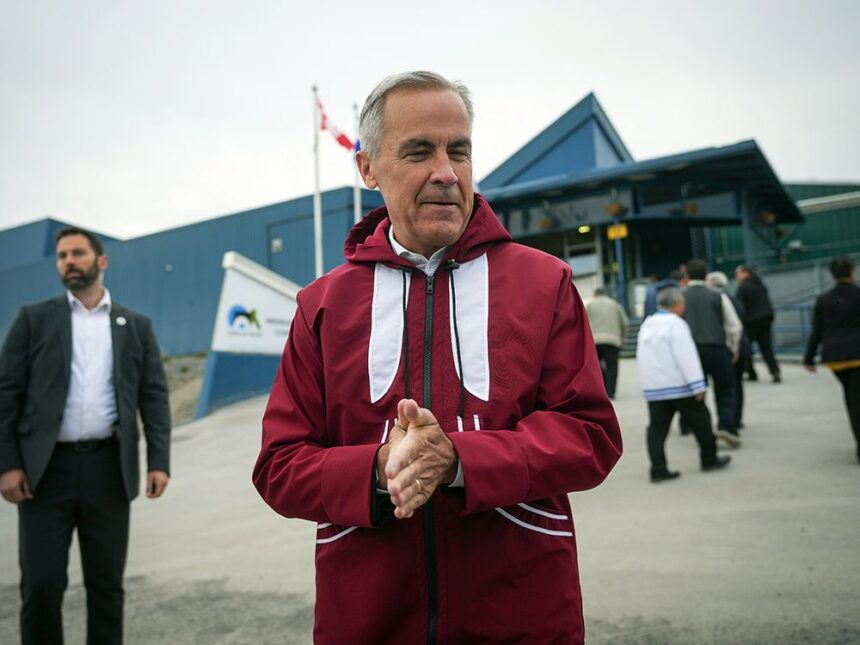In a significant address that could reshape Canada’s approach to resource development, Mark Carney pledged yesterday that indigenous treaty rights would be “respected and upheld” in any major projects under a potential Liberal government. Speaking at an economic conference in Ottawa, the former Bank of Canada governor outlined his vision for reconciling economic growth with indigenous sovereignty—a balance that has eluded Canadian policymakers for generations.
“The path forward requires genuine partnership, not mere consultation,” Carney stated, addressing a packed audience of business leaders, indigenous representatives, and policy experts. “Projects that impact traditional territories must proceed with free, prior, and informed consent, as recognized in international law and affirmed by our own Supreme Court.”
Carney’s comments come amid persistent tensions between resource development interests and indigenous communities across Canada. The Trans Mountain pipeline expansion, Coastal GasLink project, and numerous mining ventures have faced legal challenges and protests from First Nations asserting their rights to decide what happens on ancestral lands.
Indigenous leaders cautiously welcomed Carney’s statement but emphasized the need for concrete action. Grand Chief Stewart Phillip of the Union of BC Indian Chiefs told CO24: “We’ve heard promises before. What matters is implementation and genuine recognition of our decision-making authority, not just words.”
The economic stakes are substantial. According to a 2023 Conference Board of Canada report, over $200 billion in potential resource investments remain stalled due to uncertainty around indigenous consent and regulatory processes. Meanwhile, landmark court decisions, including the 2021 Ermineskin Cree Nation ruling, have reinforced the legal obligation for meaningful consultation.
Carney, whose possible entry into politics has been widely discussed, presented a framework that would require project proponents to engage with indigenous communities at the earliest planning stages rather than after key decisions have been made.
“The era of presenting communities with essentially completed plans and asking for approval must end,” he asserted. “Economic partnerships that create genuine shared prosperity are not only morally necessary but economically advantageous.”
Financial analysts note that Carney’s approach aligns with growing investor emphasis on indigenous relations as a key factor in environmental, social, and governance (ESG) assessments. Major asset managers increasingly view unresolved indigenous rights issues as material risks to project viability.
“Companies with strong indigenous partnerships typically experience fewer delays, lower legal costs, and better community outcomes,” explained Maya Richardson, ESG director at Toronto-based Meridian Capital. “Investors are increasingly recognizing this correlation between respectful engagement and project success.”
The Liberal Party has not yet confirmed whether Carney will run as a candidate in the next federal election, though speculation has intensified following his increased public appearances discussing Canadian economic policy.
Opposition parties have questioned the timing of Carney’s indigenous rights pledge. Conservative resources critic Michael Barrett called it “convenient positioning” ahead of a potential political campaign, while NDP indigenous relations critic Lori Idlout argued that “the Liberal record on reconciliation has consistently fallen short of their rhetoric.”
Legal experts observe that Carney’s position reflects evolving jurisprudence rather than a radical departure from established legal principles. “The courts have been clear that the duty to consult has real teeth,” noted constitutional lawyer Patricia Reynolds. “What’s significant is seeing this acknowledgment coming from someone with Carney’s economic credentials.”
As Canada grapples with simultaneous pressures for economic development, climate action, and indigenous reconciliation, the question remains: can a new approach to project approval deliver both justice for First Nations and the investment certainty businesses seek? For communities who have seen promises broken repeatedly throughout history, the answer will lie not in speeches but in the actions that follow.
























